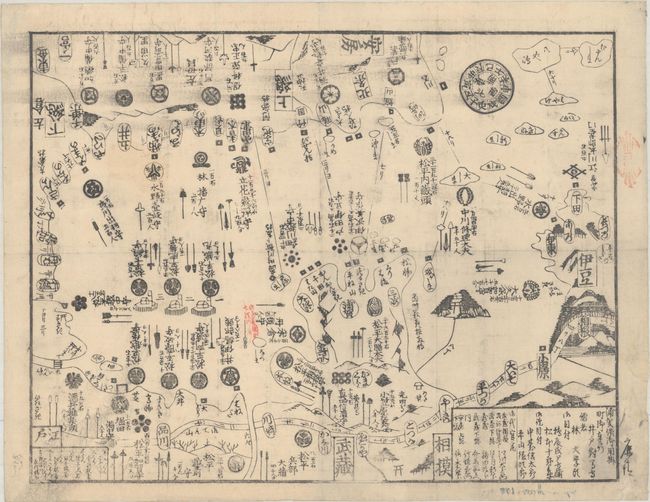Catalog Archive


Auction 198, Lot 616
"[Edo Bay Showing Defenses for Perry's Arrival & A List of Samurai Who Were in Charge of Matters in Uraga Port]", Anon.

Subject: Tokyo, Japan
Period: 1854 (circa)
Publication:
Color: Black & White
Size:
14.9 x 11.4 inches
37.8 x 29 cm
Download High Resolution Image
(or just click on image to launch the Zoom viewer)
(or just click on image to launch the Zoom viewer)